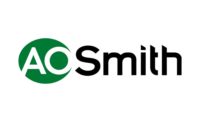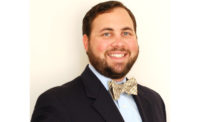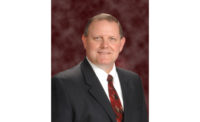Every successful project starts with a framework. A vision statement. A blueprint. The editors of Engineered Systems are proud to present The Blueprint — a monthly Q&A interview with HVACR engineering’s leading voices. These one-on-one discussions will examine the trade’s history, current industry trends, the factors shaping the sector’s future, and more.
A. O. Smith Corp. is one of the world's leading manufacturers of residential and commercial water heaters and boilers, offering a comprehensive product line in North America, China, and India.
The company was founded in 1874 in Milwaukee, and its headquarters are still located there. A. O. Smith employs approximately 16,300 men and women at operations in the U.S., Canada, Mexico, China, India, the United Kingdom, the Netherlands, and Turkey, which has the global reach to serve customers worldwide. The company also has sales and distribution in more than 60 countries around the world.
Recently, Patricia Ackerman, senior vice president of investor relations, corporate responsibility and sustainability, and treasurer for A. O. Smith Corp., sat down with Herb Woerpel to discuss the company’s 2020 Corporate Responsibility & Sustainability (CRS) Report, how the COVDI-19 pandemic has impacted production, and more.
To see all of Engineered Systems' Blueprint Q&A interviews, click here.
Engineered Systems: Can you start out by introducing yourself to our audience?
Patricia Ackerman: I’m Patricia Ackerman, senior vice president of investor relations, corporate responsibility and sustainability, and treasurer for A. O. Smith Corporation. I’ve been with A. O. Smith since 1983.
Engineered Systems: A. O. Smith recently introduced its 2020 Corporate Responsibility & Sustainability (CRS) Report. Tell us about the significance of this report and how it validates the company’s commitment to the environment.
Ackerman: The 2020 CRS Report marks the second in our company’s history. It reflects our commitment to living our corporate values and bringing innovative, efficient products to market. As a global leader in water technology, we strive to meet evolving customer needs, especially as they relate to climate change and greenhouse gas (GHG) emissions reduction technology. With this report, we put our stake in the ground by announcing our first public GHG emissions reduction goal and detailing our achievements and improvements in key areas over the past two years. We’re proud of the progress we’re making in the areas of efficiency, energy conservation, and sustainability, but we realize this is a marathon, not a sprint, and there’s more work to be done.
Engineered Systems: The 2020 report details the company’s goal to reduce greenhouse gas emissions by 10% by 2025. Why make this announcement and what actions does the company intend to implement to reach this goal?
Ackerman: The establishment of our first public GHG emissions reduction goal is an important pillar of our vision to lessen the impact we have on the environment and be good stewards of the resources we use in our operations across the globe. The goal was developed through a strategic initiative to identify opportunities to further reduce the energy we consume in our manufacturing facilities.
We’ve developed a “CRS Impact to Capital” scorecard in our manufacturing operations. It provides our facilities with a framework to access capital projects for their impact on our energy, GHG emissions, water, and waste footprints. The scorecard has been deployed in North America with all 2020 capital projects having been assessed for their environmental impact versus a 2019 baseline. The next step is to implement the scorecard across all global operations.
This year, we kicked off a global initiative by identifying a cross-functional Energy & Greenhouse Gas Emissions Reduction team to gather data, develop performance metrics, track our efforts, and further identify opportunities to reduce our GHG emissions footprint over the coming years.
Engineered Systems: The report also notes that 28% of revenue comes from products that reduce the impact on the environment throughout their life cycles. Can you list a few of these products and highlight their environmental impacts?
Ackerman: Our water heaters and boilers are among the most innovative and energy-efficient on the market. Leading the way are our high-efficiency, commercial, condensing storage water heaters, boilers, tankless water heaters and heat pump water heaters. These products are among those that have received the highest efficiency ratings in the U.S. Environmental Protection Agency’s (EPA’s) Energy Star program, which only certifies products that exceed minimum standards set by the federal government.
In our North America Water Heating business, 17 out of 18 product development projects either “in development” or “pending resources” are either zero carbon or high-efficiency (condensing) gas products, which typically support a 50% improvement in energy efficiency over traditional, noncondensing products. It’s also important to note that sales of high-efficiency water heaters and boilers from our North America business units offset GHG emissions of 222,790 tons and 289,110 tons, respectively.
Our Cyclone® water heater is one of the highest efficiency commercial gas water heaters on the market with thermal efficiencies up to 98%. The Voltex® hybrid electric heat pump water heater is one of the most efficient water heating technologies for residential use. The CREST® condensing boiler from Lochinvar is a market leader for large commercial applications with thermal efficiencies up to 99% in low water temperature applications.
Engineered Systems: The coronavirus has impacted all aspects of business. How has A. O. Smith navigated the crisis?
Ackerman: Since the beginning of the pandemic, our employees have worked to ensure the health and safety of each other, so we could remain operational, maintain production levels, and meet our commitments as an essential business.
Across the world, small businesses, government organizations, large corporations, and health care systems experienced a critical need for hot water for sanitization and clean drinking water to help reduce the risk of infection. Working closely with our suppliers and distributors to ensure our products were delivered on time so that businesses could stay open safely required our team to pivot quickly to minimize any disruption in our supply chain.
We also partnered with hospitals, schools, nonprofits, and other businesses to donate our products and personal protective equipment to help keep communities safe and healthy.
Despite the circumstances, our businesses performed well overall, bolstered by replacement demand for residential water heaters in North America. Our balance sheet and liquidity position has enabled A. O. Smith to continue to invest in innovative technologies and products, while advancing our processes to improve productivity.
Engineered Systems: At A. O. Smith, things are done “The SmithWay.” Can you introduce us to “The SmithWay” culture and what it entails?
Ackerman: Following the SmithWay means acting in a fair, honest, and consistent manner in all of our business activities. We expect everyone at A. O. Smith — employees, officers, and directors as well as affiliated and subsidiary companies, consultants, contractors, and other third parties that A. O. Smith engages to work on its behalf — to maintain the highest ethical standards and avoid any activity that could compromise these standards.
Engineered Systems: Speaking directly to our consulting/specifying engineering audience, what A. O. Smith products should engineers consider adding to their commercial HVAC portfolio that perhaps they’re not using today?
Ackerman: Last summer we launched the Cyclone XL gas water heater with inputs up to 1 million Btu/hr in a footprint that’s just slightly larger than our Cyclone 500,000 Btu/hr model. This product provides customers with the same high-efficiency, cutting-edge technology available in current Cyclone models but with increased input options and expanded application use.
Our CREST condensing boiler has changed the way the industry views fire-tube boilers. With a Btu range of 750,000 to 6 million, CREST boilers have the power and flexibility to provide heat and hot water in almost any commercial application.
In February, we grew our line of ARMOR® condensing water heaters and added five new models. The line now ranges from 399,000 to 4 million Btu/hr and offers up to 99% thermal efficiency.
Heat pump technology also offers a comprehensive solution for commercial spaces. The science behind this trend isn’t new, but relying on this technology to help decrease the world’s reliance on fossil fuels represents the latest movement in sustainable water heating. As more stringent environmental and energy regulations continue to be adopted in the commercial construction space, we offer options to help comply with both.
We’re also uniquely positioned to offer complete solutions in the commercial water heating space with air- and water-source heat pumps, storage tanks, and back-up heat options, available as separate offerings or in custom package systems.
Engineered Systems: If you could leave those who are reading this with one lasting piece of advice, what would it be?
Ackerman: A. O. Smith will celebrate its 147th year in 2021, demonstrating that we know something about operating sustainably. Our values-based culture and focus on innovative technologies applied to water heating and water treatment products world-wide certainly bodes well for another 147 years of success.
Engineered Systems: Patricia, thank you so much for your time. If our audience is interested in connecting with you or A. O. Smith, where should they turn?
Ackerman: People can visit www.aosmith.com for information pertaining to all our businesses. You can also find us on Facebook, LinkedIn, and Twitter.





